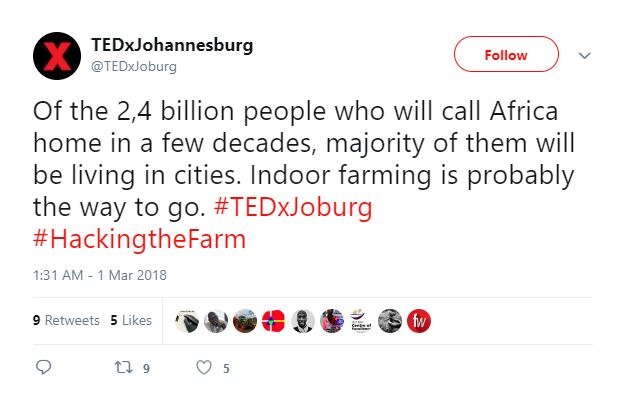
Where is our food coming from?
The recent listeriosis outbreak has raised the concern over food production and is raising questions around farming, food and the future of agriculture.
This was one of the topics discussed at TedXJohannesburg Hacking the Farm, along with other issues impacting agriculture like climate change and the human population.
The event, which was recently held at innovation hub Tshimologong Precinct, explored the challenges within agriculture, as well as the exciting changes that the industry is going through, as it transforms to meet the demands of a rapidly approaching future, according to the website.
The event brought together a variety of experts, including farmers, technologists, economists, agronomists, entrepreneurs, researchers, inventors, designers and activists. The speakers were not only from South Africa, but were representative from other African and European countries as well, including Nigeria, Uganda, Germany and the Netherlands.
Some of the speakers ranged from entrepreneurs and inventors like Mojisola Ojebode, Nigerian founder of Moepelorse Bio Resources and Thato Moagi, manager of mixed farming operation Legae La Banareng to farmer Michris Janse van Rensburg and food activist, Thabi Nkosi, agricultural economist and author Tracy Ledger.
Here are some of topics in agriculture you might have missed at this year’s from Hacking the Farm.
1. Challenging Traditional Food Production
Food-borne illnesses are raising concerns over where our food is coming from, as we’re seeing with the outbreak of listeriosis. According to Busiso Moyo, food activist and researcher, the food system is not broken, but it needs to change.
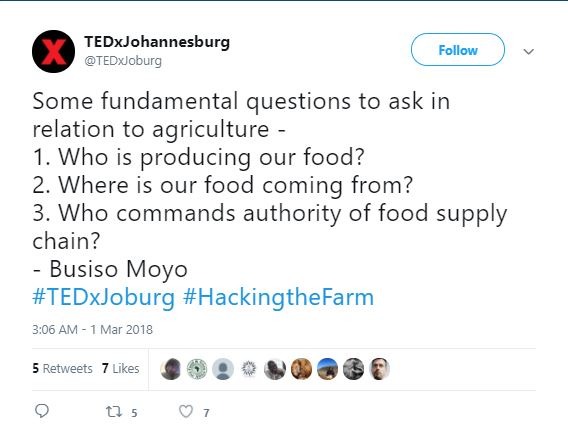
2. A New Model For Farming
What crowd funding did for entrepreneurs, crowd farming can achieve for those looking to invest in farming. This was the message of Nthuthuko Shezi, whose crowd farming platform Livestock Wealth allows everyone to invest in cows even if they do not own a farm or have expertise in farming.
Shezi’s platform allows individuals to invest in pregnant cows – living breathing cows – and use their offspring as a type of return or dividend as it is sent off to slaughter. In his talk, Shezi highlighted how crowd farming is an innovative approach to ownership of farms, while also funding agribusinesses.
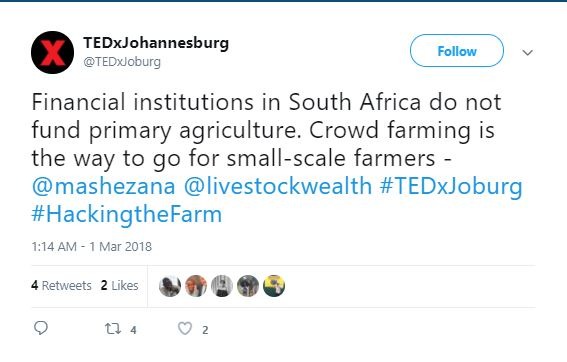
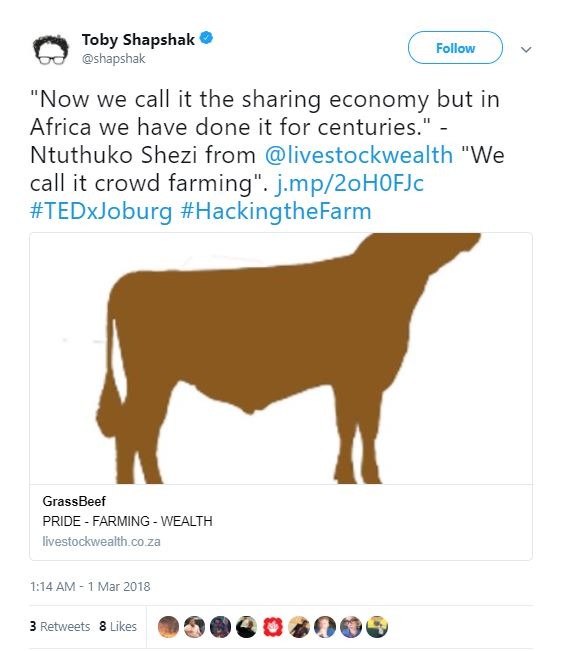
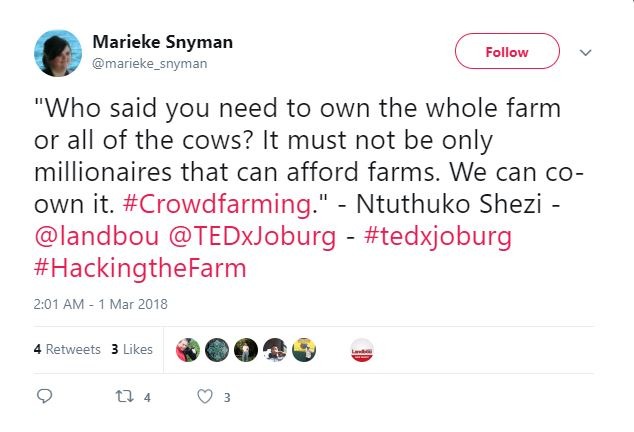
3. Moving farming to mainstream to attract investment
The agricultural industry needs to move into the mainstream. Farming shouldn’t only be for farmers says Thabi Nkosi, executive director of Research and Investments at AFGRI Group Holdings (AGH), an investment holding company.
Nkosi highlighted the need for everyone to look towards the industry, in particular, more investors which are much needed by the industry
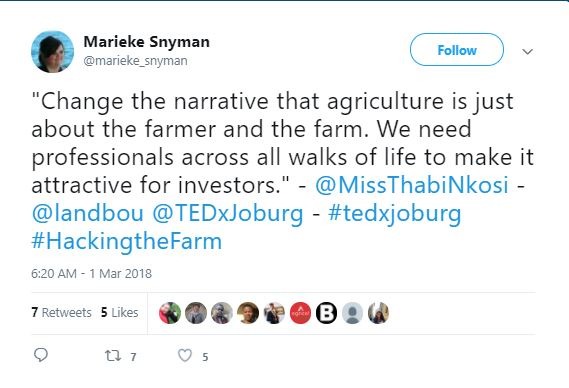
4. Opportunities In Agriculture
One of the biggest challenges that was identified during the event was attracting young people to the agriculture industry. Joshua Ngoma, non-executive director of Great Basin Gold Limited and founding member of Tranter Holdings said a solution would be to make the industry more exciting by incorporating tech.
However, Thato Moagi, a nationally awarded agripreneur and managing director of Legae La Banareng Farms, also speaking at the event, says when young people do decide to enter the industry, they face challenges like no capital and the lack of expertise.
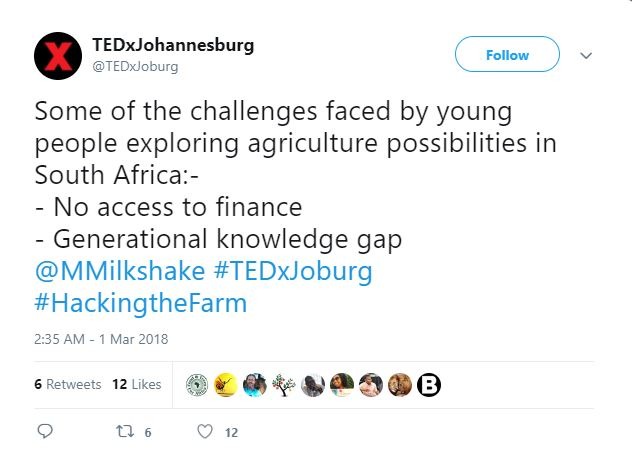
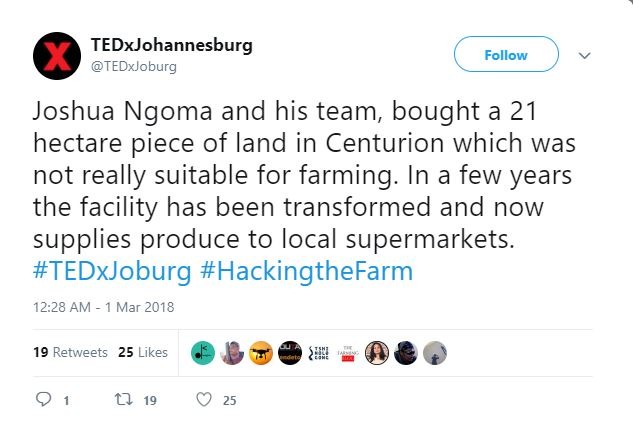
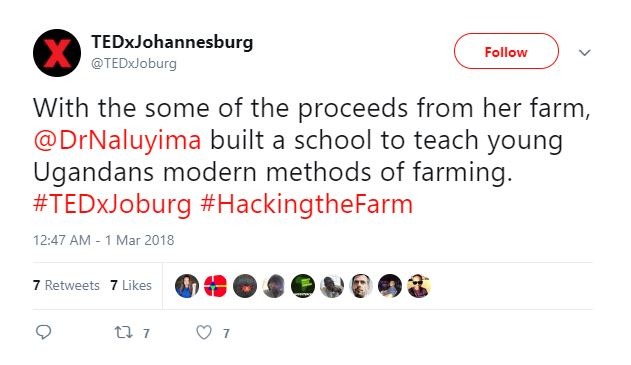
5. Rethinking the farm
The global population is growing rapidly, estimated to be around 9.7 billion people by 2050. Gertjan Meeuws, an entrepreneur from the Netherlands, and co-founder of PlantLab, Here, There & Everywhere and Seven Steps To Heaven says current attitudes and farming practices need to change to meet food production expectations of a growing population. He says one of many possible solutions to this is indoor farming .
This involves growing crops through methods like hydroponics – in which crops are grown in nutrient-rich water. The Netherlands is one of the few countries that has experimented with indoor farming.
